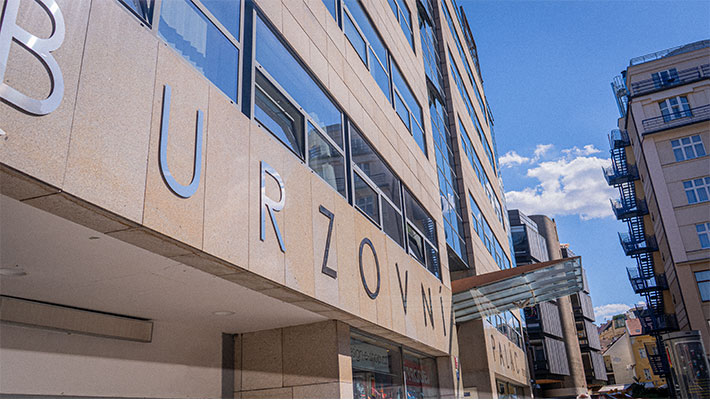Prague Stock Exchange
#PSE as the main market operator since 1871
Prague Stock Exchange (PSE) is the largest and oldest organizer of the securities market in the Czech Republic. A stock exchange is a market where the price of securities or commodities is determined on the basis of supply and demand. The main task of a stock exchange is to bring together investors who want to increase the value of their funds and companies which want to gain new capital. It thus fulfils an important function for the entire national economy. The stock exchange’s activities and capital market operation are supervised by the Czech National Bank.
Trading on PSE is conducted via licensed securities traders who are also the Exchange Members. These are primarily the major banks and brokers. If a common investor decides to invest in the exchange, he/she needs to contact one of the Exchange Members.
Significance for investors:On the stock exchange, investors may purchase and sell securities at any time to generate profit. And why do investors choose the Prague Stock Exchange? Because of high dividends and knowledge of local companies, for example.
Significance for companies: An initial public offering provides companies with sufficient capital to be used to finance investments and research or, for example, penetrate other markets. The PSE offers several markets suitable for different types of companies – from the elite Prime Market for large companies to START Market for smaller and innovative Czech companies.

PSE and its subsidiaries form the PX Group. In addition to the Exchange, the most important member in the Group is Central Securities Depository Prague (CSD Prague) which has a dominant position in the area of settlement of securities trades on the Czech capital market. PX Group also co-operates with POWER EXCHANGE CENTRAL EUROPE (PXE) which offers power and gas trading.
PSE closely cooperates with Vienna Stock Exchange (Wiener Börse). At the international level, this cooperation enables joint measures to increase the visibility of both markets and to acquire professional market participants such as data vendors and index licensees, institutional investors and trading participants for the member exchanges.
PSE is a member of the Federation of European Securities Exchanges (FESE), and the US Securities and Exchange Commission (US SEC) included PSE on its list of exchanges safe for investors by granting it the status of “Designated Offshore Securities Market”.
History
Efforts to create a stock exchange date back to the reign of the Empress Maria Theresa, but success was not achieved until 1871. Initially, both securities and commodities were traded at the Prague exchange. The Prague exchange enjoyed great success in the sugar trade, becoming a key market for the whole Austro-Hungarian Empire.
After World War I, however, this type of transaction declined, so thereafter only securities were traded. For the Prague exchange, the interwar period became the era of its greatest boom. The Prague exchange even surpassed the Vienna exchange in importance. This period of prosperity was, however, interrupted by the arrival of World War II, bringing an end to trading at the Prague exchange for more than 50 years. Not until after the fall of Communism was it possible to follow up on the exchange’s heritage of success and prosperity. With the first trades made on the floor of the renewed exchange on 6 April 1993, the Prague Stock Exchange began to write its modern history.
And why is the stock exchange sometimes called a bourse? Long ago, traders from all over the world used to meet in front of the Belgian banking family Van der Beurse, which had a pouch full of money in their coat of arms, and the regular business meetings soon became known as the “bourse”.
The history of the Exchange in a short film prepared on the occasion of the 20th anniversary of the modern history of PSE






